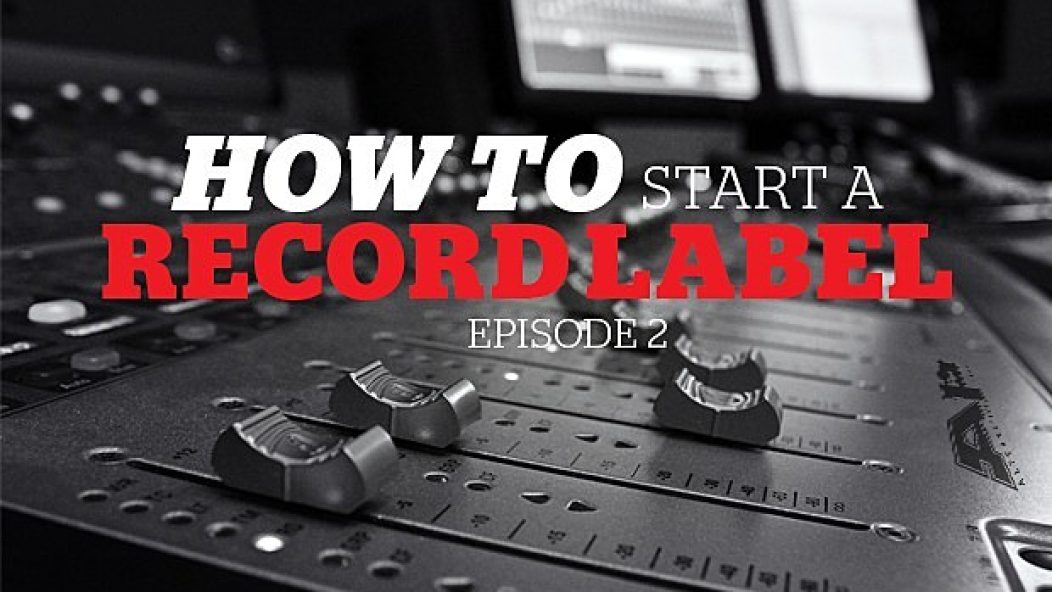
How To Start A Record Label: Let's Each Do Half A Job
Art by Alexis Howick
This is the second installment in an ongoing series—click here to read past episodes.
There's an episode of The Office (I'm going to reference that show literally every time I can) where, after Dunder Mifflin has been purchased by Sabre, Michael Scott and Jim Halpert are talking to their new boss, Jo Bennett. A strong businesswoman from Florida, Jo is the CEO of Sabre, while Michael and Jim are “co-managers” of the Scranton branch.
Michael: Jo, I don't know how things work in Florida, which from your description sounds like a colorful, lawless swamp, but here, it takes two men to do one job, where in Florida it might take one very strong woman to do such a job.
Jim: I'll take over. Um, what we're doing here: Michael handles more of the “big-picture” stuff, and I handle more of the day-to-day stuff, so together…
Jo: Yeah. I think I understand.
Jim: Alright.
Jo: Each of you is doing half a job.
How To Start A Record Label, Episode 2: Let's Each Do Half A Job
Jo Bennett is wrong about Jim and Michael, and Michael is wrong about Florida (which doesn’t suck as much as people want you to think it does). But, you should consider starting your label with a friend you trust—a co-founder. This isn't really an end-all, be-all piece of advice, because some people will do perfectly fine starting a label by themselves. But from my experience, a partner sure has been essential.
I wanted to start my own label while working as label manager at Paper + Plastick Records in Gainesville, Florida. Vinnie Fiorello from Less Than Jake owns P+P, and I was label manager through my last two years at the University of Florida and a little after that as I moved to New York and started working a regular job with regular hours. My desire to start Bad Timing sprung from curiosity more than anything—I wanted to see how I could do on my own, if I were left in charge to make all the decisions without being able to lean on Vinnie's wisdom.
But, like we talked about in the last column I wrote, you're not going to start a label and immediately begin paying yourself a yearly salary. That's impossible. You're going to have to do a ton of work and dedicate a lot of time to get your label off the ground, and if you're currently employed, or in school devoting tons of time to a job, or studying, it can be hard to put in the right amount of effort into your new passion project. You don't want to start this and not go all-in, so it could be helpful to have some assistance.
That's where a partner comes in. There are two things to think about when you're choosing an associate: First, you want someone who you know you can rely on. This person isn't necessarily going to be your best friend—if you know your best friend likes to spend 12 hours per day playing video games, he or she may not be the most reliable co-founder. Ideally, you want to pick someone you're familiar with, have worked with in the past, and who offsets your weaknesses or adds a great characteristic to the company you might be lacking.
And there's the second thing: You want to be a balanced team. I started Bad Timing with Zack Zarrillo, whom I knew for a few years by that point. We talked almost daily, as he ran PropertyOfZack and I was highly involved on AbsolutePunk; later, he would manage a pop-punk band called Light Years, who I signed to Paper + Plastick. I already knew I had a good relationship with Zack and that I trusted him enough to start a label with me. Additionally, I knew Zack had experience doing things I hadn't done—things like registering a business and fostering great relationships within the industry. For example, Bad Timing never would have worked with Kevin Devine if it weren't for Zack’s connections.
Zack and I split things up very evenly from the get-go, and we continue to delegate equally today. Bad Timing is not a main priority for me or Zack, so we each work on it when we can and somehow manage to get everything done. That's because we know our roles: Zack is usually always responsible for registering our releases with SoundScan, while I'm usually always responsible for building the products and bundles in the back-end of our webstore. That's just an example—this 50/50 workload split runs through the entirety of Bad Timing's daily and big-picture operations.
This doesn’t mean you can't start a label on your own; it's certainly possible to do it yourself. Jeff Casazza owns Run For Cover Records, which I consider to be the gold standard for younger labels in the ~*scene*~ these days. He started RFC out of a dorm room in 2004 without a partner—he didn't have consistent help of any kind until 2010, after he'd already released successful records by Fireworks, This Time Next Year and Title Fight.
Casazza says he doesn't regret running the label on his own—including a weighty mail-order business—for about six years. “Doing it myself made me learn a lot. A lot about what I am good and bad at, and a lot about running a business,” he says. “I had no one to fall back on, and quite literally zero regular help from anyone for a very long time outside of maybe a friend coming over to assemble 7-inches every few months.”
Taylor Sullivan started lending Jeff a hand with mail orders on a regular basis in 2010, and Tom Chiari of Hostage Calm came on board as RFC's label manager and first full-time employee after that. “That was a unique situation because he was in a band on our label, so he came from the perspective of knowing what he thought needed work from the band's point of view, and I knew what we needed to work on from RFC's end,” Casazza explains. “I could have talked to you for six hours about what needed improving, I just couldn't do it all myself.” This further backs up the importance of finding a partner—whether they'll be your co-founder or your eventual first employee—who complements you well.
Suffice it to say, there isn't an unchallenged path when starting your label. You can wing things on your own, or find a partner to help navigate those early waters in the hope that two heads will be better than one as you're making important decisions. There are pros and cons to both paths—remember, having a partner or co-founder usually means that you'll only own half of your label—but in the end, it's a decision you have to make after evaluating your own strengths and weaknesses.
Next time, we're going to get into the first baby steps—stuff like getting incorporated, picking a name and a logo, and the essential tools you'll need (a website, webstore and more) to get things off the ground. alt
Thomas Nassiff is a columnist for AltPress. Follow him on Twitter.







